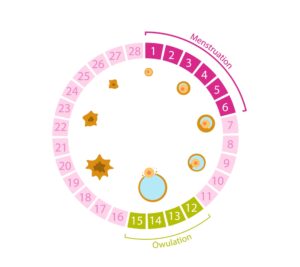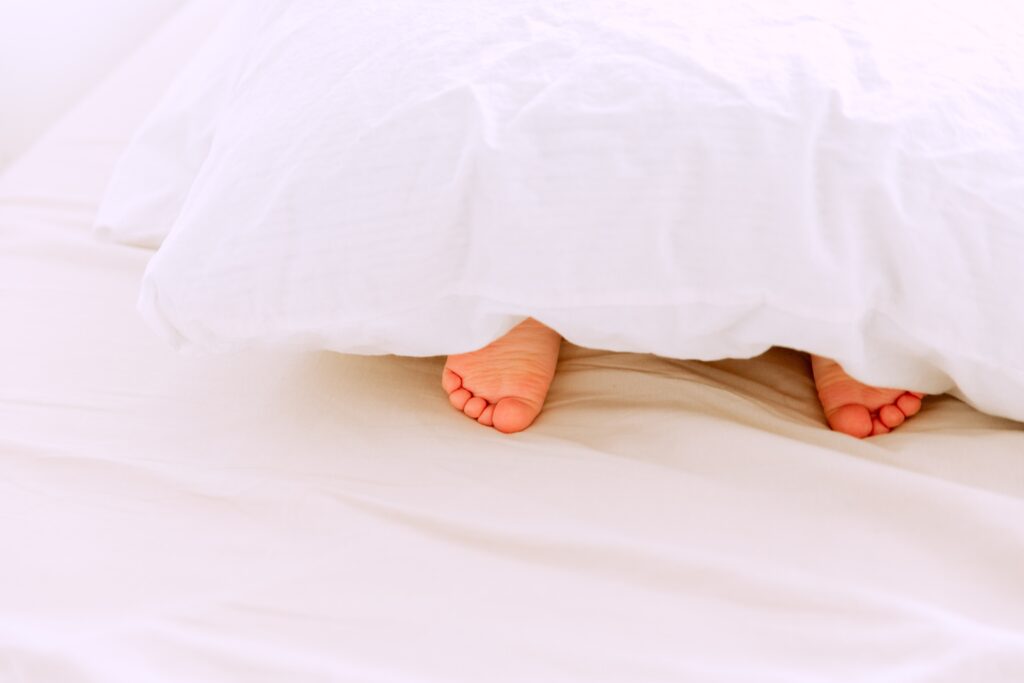We all know that children, especially the younger ones, should go to bed early for their well-being and development. However, we often don’t know exactly how much sleep children need and what time they should sleep. As they get a bit older, this issue can become the center of lengthy discussions and negotiations between parents and children. When it’s bedtime for the former, it’s almost never bedtime for the latter.
To address this issue, we want to provide you with all the answers to your questions about the sleep schedules of the little ones. As you can easily understand, these schedules depend a lot on their age.
How much should newborns sleep?
From 0 to 3 months
At that age, newborns sleep between 10 and 18 hours a day, with an average of 16 hours. Sleep can occur for many consecutive hours (for lucky parents) or in very short stretches of 10 or 20 minutes at a time. This is partly because the newborn doesn’t yet distinguish between day and night. The only parameters that interfere with their sleep are their physiological needs like drinking and eating, which wake them up roughly every 2 to 3 hours.
From 4 to 9 months
Starting from the fourth month, babies’ sleep needs gradually begin to change, although they continue to sleep an average of 12 to 14 hours a day. Nighttime sleep becomes more consolidated compared to earlier months. Awakenings are often linked to anxiety and fear of the dark and separation.
Starting from six months of age, in most cases, the sleep-wake rhythm is fairly well established, and afternoon naps usually reduce from 3 to 2.
From 10 months to preadolescence
Once they enter their tenth month of life, most children tend to sleep through the night without waking up, even for feeding. The total hours of sleep now amount to around 12 hours per day with a maximum of two naps during the day.
From 12 years old and up
As adolescence approaches, the sleep pattern becomes roughly like that of adults, and 8-9 hours per night typically become enough.
What time should children go to sleep?
We have looked in detail at the sleep needs of children according to their age, but it remains to know how to set the bedtime schedule.
Usually, to promote a healthy lifestyle, it is advisable to get school-age children, including those up to preadolescence, to go to bed between 8:30 PM and 9:00 PM so they can wake up at 7:00 AM the next day.
From the age of 12 and onwards, as already mentioned, the body requires fewer hours of sleep, and stress levels related to major changes in adolescents’ lives, such as returning to school and growing independence from parents, tend to decrease. Therefore, it’s possible to allow them to stay awake until 10:00 PM, perhaps to enjoy a family movie or spend an extra hour on their favorite activities.
It’s important to always ensure that children get a number of hours of sleep that at least covers their basic physiological needs, preferably a little more, so they have easy awakenings and all the energy and concentration necessary for their days.
Useful tips to help newborns sleep
Here are some tips to help newborns sleep well:
- Establish a bedtime routine: This will help the baby relax and associate bedtime with something positive.
- Ensure the baby’s room is dark, quiet, and cool.
- Avoid giving the baby excessive stimulation before bedtime.
- If the baby wakes up during the night, try to soothe them without picking them up.
The right environment to help children sleep better
If we want our children to go to bed early and get a good night’s sleep, then we need to ensure that their sleeping environment is appropriate, taking into account some important elements such as:
The bedroom
The decoration of their bedroom is a very important factor for children’s good sleep. Having a room with brightly colored walls, colorful furniture, their favorite toys within reach, and a nice play rug on the floor creates a sense of security, serenity, and happiness in the little ones, helping them sleep well on their own. Temperature is also important: keeping it between 18°C and 24°C (64°F – 75°F) will ensure optimal sleep.
A good bed system
The choice of a good bed system is another element to consider in ensuring your children get a good night’s sleep. A child’s bed should be comfortable, with a good mattress, not too narrow to accommodate their movements and growth, and it should not retain too much heat, as this is one of the factors that disturbs their sleep the most (as well as that of adults).
The right mattress size for a child’s age depends on several factors, including the child’s height and weight, the bed size, and comfort needs.
In general, it is recommended to choose a mattress that is at least 10 cm longer than the child so they can sleep comfortably without falling off the bed. The width of the mattress should be sufficient to allow the child to move freely.
Here are some guidelines on mattress size based on the child’s age:
- Children up to 3 years: 60 x 120 cm
- Children from 3 to 6 years: 70 x 140 cm
- Children from 6 to 12 years: 80 x 160 cm
- Children from 12 to 18 years: 90 x 190/200 cm
It’s also important to consider the mattress density. A mattress that is too soft won’t adequately support the child’s body, while a mattress that is too hard can be uncomfortable and cause back pain.
Make your little ones’ nights truly restful by ensuring they get an adequate number of hours of sleep in a room that is tailored to their needs.

 Italiano
Italiano



